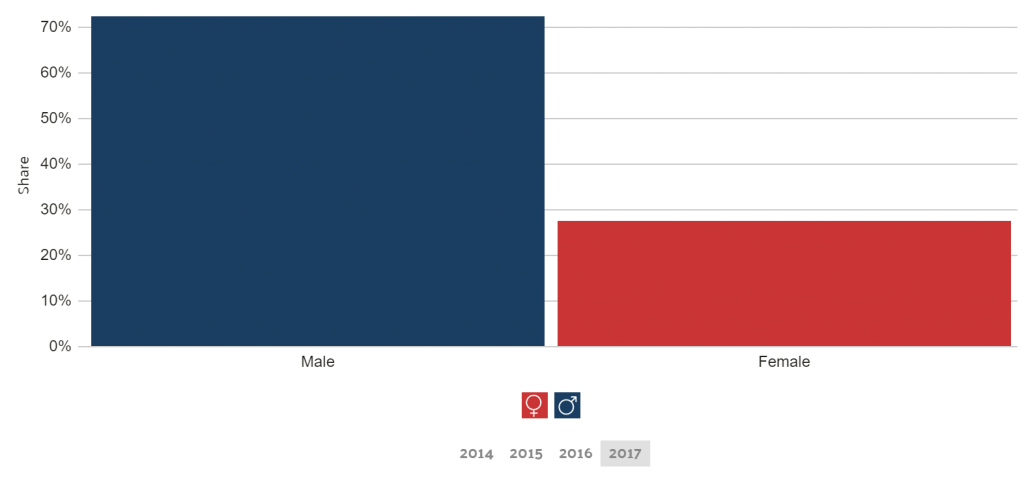Really Economics? I say this phrase as just this month, the hiring practices for all Economists has changed from occurring in hotel rooms to actual interview spaces. It is pretty astounding that it took until 2019 for the American Economic Association to realize it was not a good practice for young, female, post-docs, to be interviewed in closed hotel rooms (or for that matter young post-docs at all). Though it is astounding that this practice did not end until recently, it is not surprising: economics is a pretty homogeneous discipline. According to data taken from the census bureau, over 70% of economists are male (see graph), over 70% are white, and their average age is over 40. This leads to a picture of economics as a discipline with a view of the world that is fairly singular. It is clear when we look to the important figures of modern economics that their troubling views. For example John Maynard Keynes, the man from which Keynesian Economics gets its name, was an enthusiastic Social Darwinist and Eugenicist. Looking back on the history of economics, it is clear that it is a discipline deeply rooted in the views of older, upper-class, British men (and later old American men) for whom the world could be viewed simply as centered in Cambridge and Oxford. While it would be easy to continue to criticize the AEA, it also important to acknowledge that economics as a discipline has a lot of obstacles rooted in its history that thwart change. The overdue change in interview practice is hopefully a continuing step in the right direction, that will hopefully make economics more hospitable for a more diverse, younger, and more gender balanced discipline.
note: this is a post in the ongoing series “Really Economists?”


It is great to see someone making these important points. This may also be why the discipline is so slow to change, e.g., the optimizing, rational individual/firm assumption.